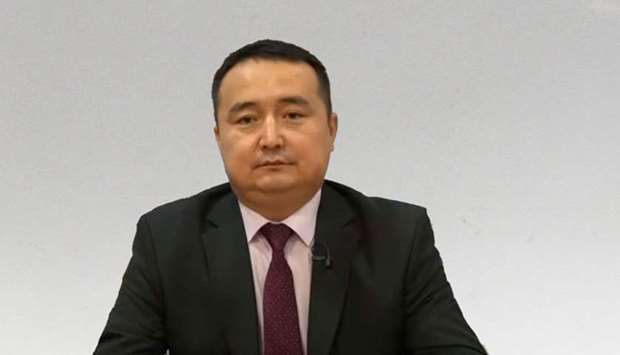Kazakh police on Sunday arrested an activist who has campaigned for victims of China's re-education drive in Xinjiang, sealing his informal group's office and taking its computers, his civil partner said.
Serikjan Bilash, who has led a loud awareness drive centred on ethnic Kazakh victims of China's crackdown in the region, was arrested in Kazakhstan's largest city Almaty and flown to the capital Astana, his partner told AFP. Bilash appeared on Sunday in a video filmed by Kazakh police confirming he was facing charges of inciting hatred, although it was not immediately clear what motivated the charges.
"They took my husband in the early hours of Sunday and transferred him by plane to Astana. It seems to be very serious," Bilash's partner Leila Adiljan said.
In the video statement, Bilash confirmed he was in police custody in Astana and had not been taken "by either the Chinese or Chinese spies".
An AFP correspondent saw a group of Kazakh law enforcement officers leave the office used by Bilash's Ata-Jurt rights group with black plastic bags on Sunday.
The policemen refused to comment but office volunteers said the bags contained computers, cameras and hard drives with information about people detained in Xinjiang.
The office was later sealed.
Bilash has hosted regular press conferences at the location, highlighting the plight of Kazakhs and other majority-Muslim groups in Xinjiang, where China is pursuing its "re-education" campaign as part of what it calls an anti-separatist drive.
Oil-rich Kazakhstan's government is a Beijing ally that positions itself as "the buckle" in China's trillion-dollar Belt and Road trade and investment agenda, a strategy for infrastructure and development projects throughout Asia, Europe and Africa.
Kazakhstan's foreign ministry has entered into dialogue with Beijing over Kazakhs in Xinjiang, but only mentioned the re-education camps publicly for the first time earlier this month.
More than a million people from Muslim minorities -- mostly ethnic Uighurs, but also Kazakhs, Kyrgyz and Hui -- are being held in internment centres across Xinjiang, according to a United Nations panel of experts.

